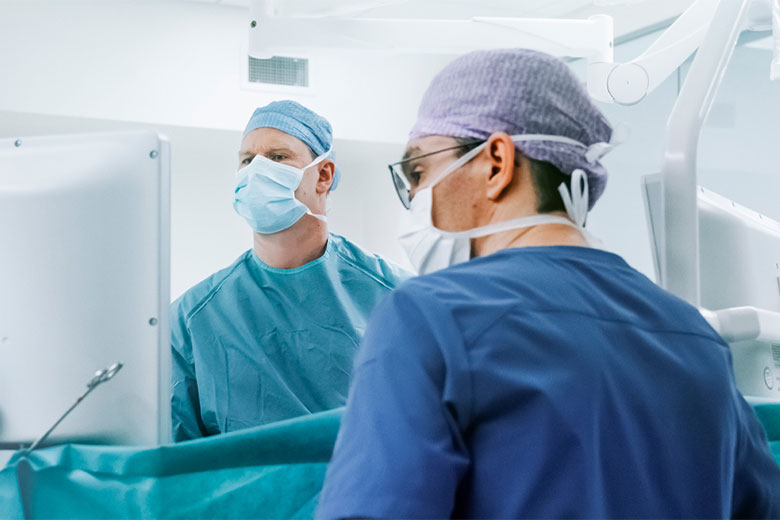Interventional Cardiology Fellowship
Lahey Hospital & Medical Center offers an interventional cardiology program each year for its one year ACGME accredited program.
The Cardiovascular Medicine Department at Lahey Hospital & Medical Center is at the forefront in the treatment of heart disease using Interventional Cardiology methods. Interventional cardiology procedures are less invasive than traditional open heart surgery, and in many cases they offer new hope for people who cannot undergo major heart surgery.
Interventional cardiology is a branch of medicine that treats heart disorders with thin tubes called catheters that are threaded through blood vessels to the sites of a blockage or an area of disease. It also involves the placement of state-of-the-art stents to keep vessels open, as well as medical devices to treat heart valve disorders.
Lahey specialists have contributed greatly to the refinement of these minimally invasive techniques. Lahey is the second-busiest center in New England in performing a leading-edge treatment called Transcatheter Aortic Valve Replacement (TAVR).
Other types of Interventional Cardiology procedures performed by Lahey specialists include:
Dr. Gautam Gadey: Serves as the Director of the Cardiac Catheterization Lab at Lahey hospital and medical center. He is board certified in Cardiovascular Disease and Interventional Cardiology. His specialties include Structural interventional cardiology, Complex coronary artery disease, and Peripheral vascular disease.
Dr. Thomas Piemonte: Lahey cardiovascular medicine specialist Thomas Piemonte, MD, has partnered with Cleveland Clinic cardiothoracic surgeons to develop an experimental intravalvular balloon device called Mitra-Spacer, to treat patients with a condition called mitral regurgitation who are not candidates for surgical treatment. This device is currently in clinical trials.
Dr. Chris Pyne is a pioneering interventional cardiologist with a national reputation in radial artery catheterization. He has led the effort to ensure that Lahey remains in the forefront among cath labs in the country. Our laboratory performs a higher percentage of radial catheterizations than any other cath lab in New England. Dr. Pyne has also been a champion of radiation safety by introducing and promoting radiation awareness and radiation safety.
Dr. Frederic S. Resnic, Chairman of the Department of Cardiovascular medicine and co-director of the Lahey Health Comparative Effectiveness Research Institute (CERI). Dr. Resnic directs CERI’s efforts in utilizing real-world clinical data to evaluate the impact of alternative treatments used in the treatment of cardiovascular disease. His particular research focus is on the safety of medical devices, and has been the recipient of numerous Federal grants to study the performance of implantable medical devices, and their safety over time.

Lahey Hospital & Medical Center offers an interventional cardiology program each year for its one year ACGME accredited program.